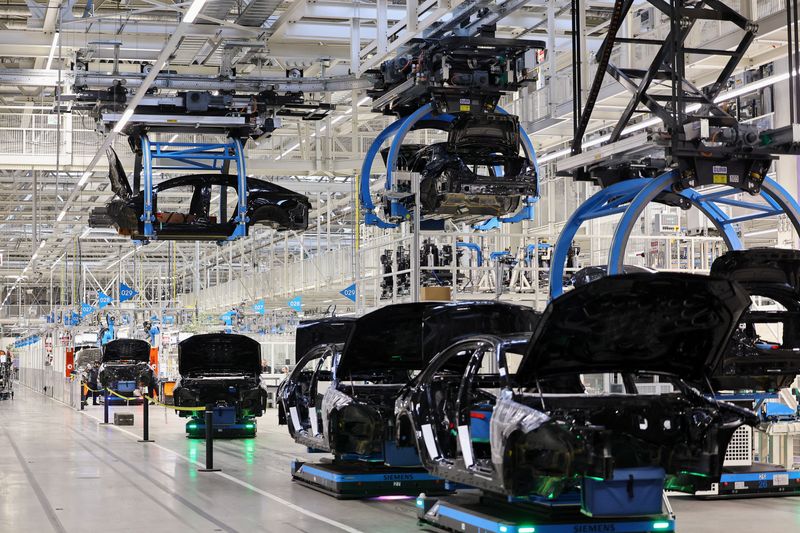By Rachel More
BERLIN (Reuters) -German business morale improved more than expected in October, a survey showed on Friday, offering hope for some respite towards the end of the year in the economy's grinding battle with industrial woes and weak global demand.
The Ifo institute said its business climate index increased to 86.5 in October from 85.4 the previous month. Analysts polled by Reuters had forecast a reading of 85.6.
"The German economy has been able to halt its decline for the time being," Ifo president Clemens Fuest said.
The recovery in business sentiment, which ends a four-month streak of decline, sounds a more positive note for the fourth quarter in Europe's largest economy, which has long been battling to fend off recession.
Data on gross domestic product in the third quarter is due next week, with a technical recession - defined as two consecutive quarters of contraction - firmly on the cards.
Economists polled by Reuters forecast another 0.1% decline in the third quarter after output inched downwards at the same rate in the April-to-June period.
Germany's Bundesbank says stagnation is then likely in the fourth quarter.
For 2024 as a whole, the government expects output to contract by 0.2%, which would mark a second year of decline and cement Germany's place as a laggard among its large euro zone peers.
"The German economy is facing difficult winter months. The external circumstances cannot be changed, but domestic economic stimuli could very well be provided," said Thomas Gitzel, chief economist at VP Bank, calling for economic reforms.
The German government has vowed to regain momentum with a series of measures to cut bureaucracy, free up labour and attract investment. Chancellor Olaf Scholz has invited industry players to his chancellery next week to discuss a path out of the downturn.
The Ifo survey of around 9,000 company managers eased some fears of a deep recession, showing more optimism in October regarding both the current situation and future expectations.
But the German economy still faces an uphill struggle, economists warned.

"The more likely scenario remains stagnation in the winter half-year followed by an anaemic recovery from spring onwards," Joerg Kraemer, Commerzbank (ETR:CBKG)'s chief economist, said.
"We only see some light at the end of the tunnel in 2025. Fuelled primarily by the easing of monetary policy," Jens-Oliver Niklasch, senior economist at the LBBW bank, said.